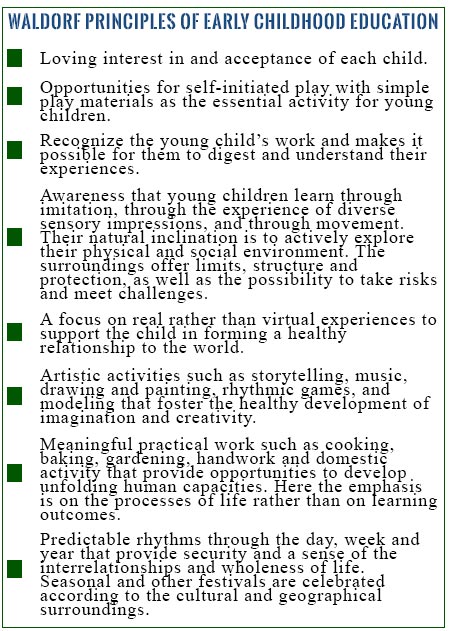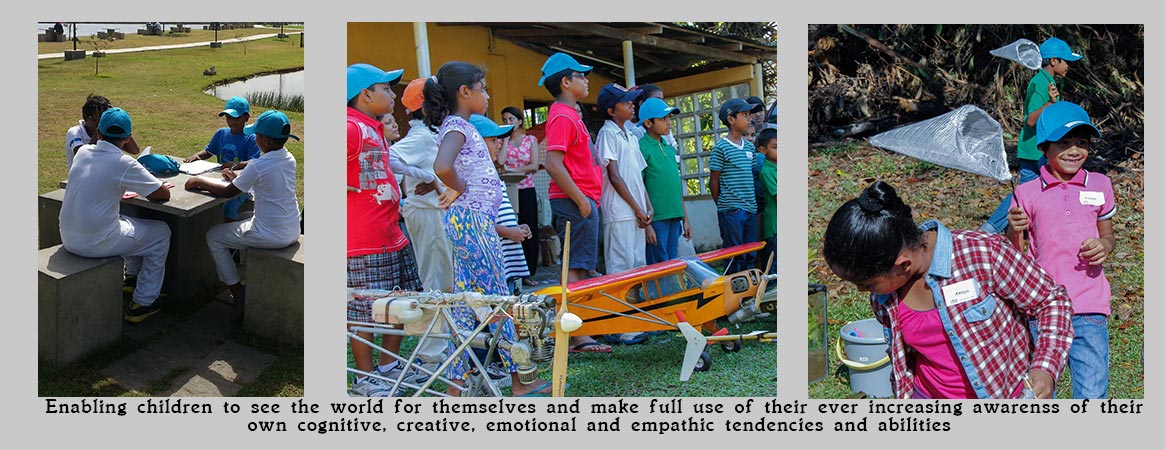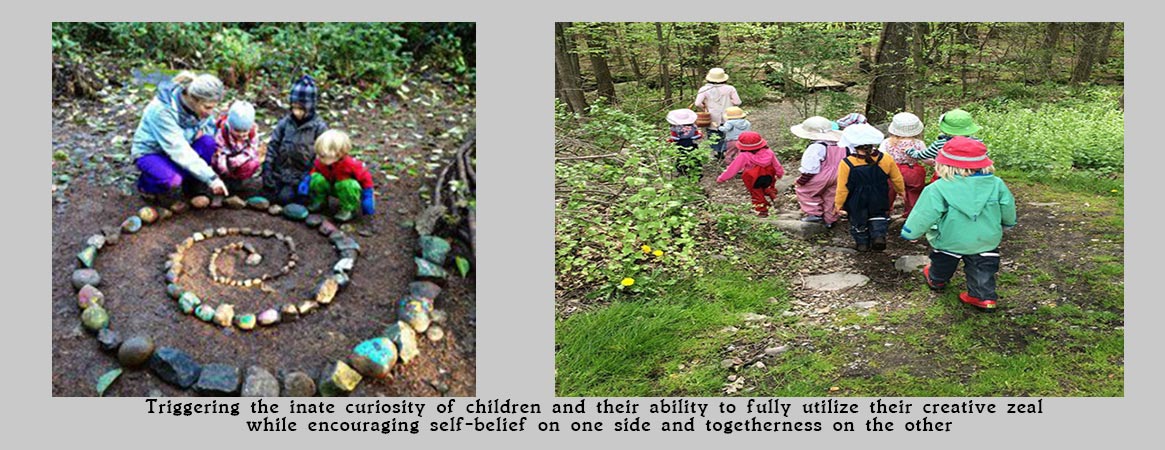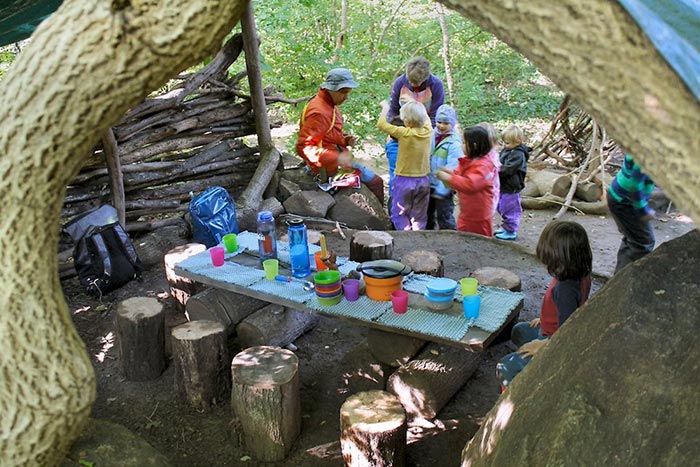Steiner-Waldorf Preschool

|
"Education must necessarily move beyond the exercises of stimulus-response where stock answers to stock questions in stock subjects are repeated by mindless rote. They must understand that a good grade is not good enough when the performance metric against which they are measured is life itself. They must have shields and the weapons that can be used in a world that is not present, not apparent and most certainly not forecast at the time that they are acquiring them." |
||||||||||
| Prabhash Lakmal - Founder, Steiner College | ||||||||||
 |
||||||||||
|
REIMAGINING EDUCATION The idea for this path breaking and innovative preschool that has seen significant success is the understanding among the leaders of Steiner College that the future development of each individual child and of humanity as a whole depends on health-giving experiences in the first seven years of life. An atmosphere of loving warmth and guidance that promotes joy, wonder, and reverence supports such healthy development. The most essential aspect of the work with the little child is the inner attitude of the educator, who provides the example for the child’s imitation. Therefore, our work demands an ongoing process of research and self-education including anthroposophical study, meditative practice, artistic and practical activity.
Given the focus of the system of early, high quality grasp of language, analytics and aesthetics, the preschool engineers a tripartite pact between the student, the teacher and the primary caregivers with all working together to ensure the wholesome and spectral growth of the child. Overarching these is the insistence that the child acquires this learning within natural spaces, sensitized to the environment and driven by the need to be both in harmony with it and protective of it.
In our system the foundation is laid for later learning and healthy development, including life-long physical, social, emotional, intellectual, and spiritual growth. This education, based on an understanding of the development of human individuality, offers protection and respect for the dignity of childhood. It includes an understanding of the unfolding development of the child from pre-birth to seven, including the unique significance of the development of walking, speaking and thinking in the first three years of life.
Activities in Waldorf early childhood education take into consideration the age-specific developmental needs of young children, from a focus on will-oriented physical activity in the first three years, then on imaginative play in the middle years of early childhood, and later a more cognitive approach to learning after the child enters school. |
 |
|||||||||
 |
||||||||||
  |
||||||||||

